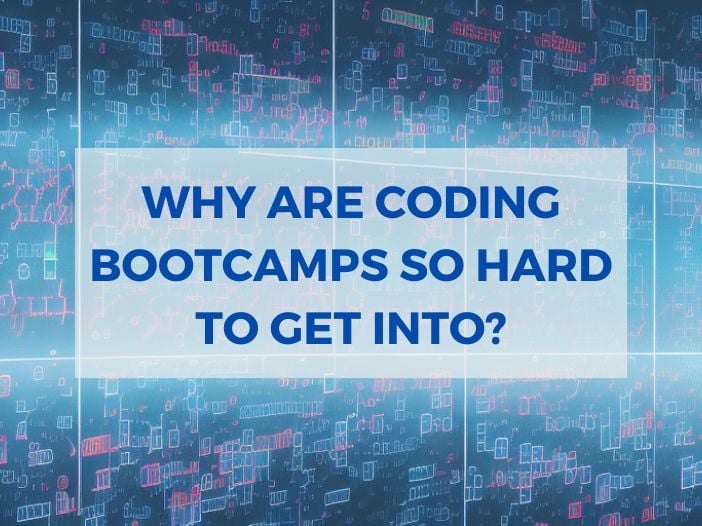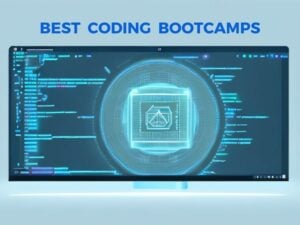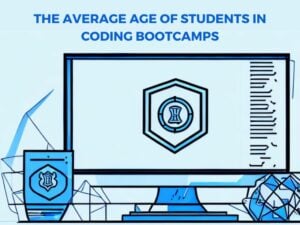As more and more people seek to enter the tech industry, the competition to gain acceptance into these programs has become increasingly intense.
The competition to get into the best coding bootcamps is due to more than just the high demand and selectivity of the programs.
Another factor contributing to the intensity of the application process is the diversity of backgrounds and skill levels of the applicants.
Many coding bootcamps attract a wide range of applicants, from recent college graduates to mid-career professionals looking to make a career change.
Some applicants may have prior experience in programming or computer science, while others may be entirely new to the field.
This diversity can make it challenging for bootcamps to evaluate applicants fairly and accurately.
A Closer Look at Coding Bootcamp Admissions Processes
Many coding bootcamps have developed multi-stage application processes, including coding challenges, interviews, and assessments of applicants’ problem-solving skills.
These processes help bootcamps identify the most promising candidates and ensure they have the skills and motivation necessary to succeed in the program.
Despite the challenges of gaining acceptance into coding bootcamps, many applicants find the effort well worth it.
Phase One
Typically, applicants will be asked to fill out an online application and provide information about their education, work experience, and motivation to participate in the program.
However, the application process is just the beginning. Many coding bootcamps also require applicants to complete online assessments or coding challenges to evaluate their technical skills.
These assessments often cover various topics, from basic programming concepts to more advanced topics like algorithms and data structures.
But why do coding bootcamps place such a strong emphasis on technical skills? The answer lies in the nature of these programs. Unlike traditional college programs, coding bootcamps are designed to be highly focused and intensive.
Participants are expected to learn a lot in a short amount of time, and they need to be able to hit the ground running from day one.
That’s why coding bootcamps often use technical assessments to evaluate applicants. By testing their coding skills and knowledge, bootcamps can better understand whether an applicant is likely to thrive in the program.
Of course, technical skills aren’t the only thing that matters. Coding bootcamps also strongly emphasize teamwork, collaboration, and communication.
Phase Two
That’s why applicants may be asked to participate in an interview, either over the phone or in person. This is a chance for the bootcamp staff to get to know the applicant better and evaluate their fit with the program’s culture and mission.
During the interview, applicants may be asked about their past experiences working in teams, communication style, and ability to handle stress and tight deadlines.
These are all important factors that can determine whether an applicant is a good fit for the program.
Admissions
Ultimately, the admissions process for coding bootcamps is designed to identify individuals who are not only technically skilled but also have the right mindset and attitude to succeed in a fast-paced and challenging learning environment.
By carefully evaluating applicants, bootcamps can create a cohort of students who are motivated, collaborative, and ready to take on the challenges of a career in coding.
What are the Requirements for Coding Bootcamps?
The specific requirements for coding bootcamps can vary widely depending on the program, but there are some general prerequisites that most programs look for.
First and foremost, applicants should have a solid understanding of the basics of programming, including knowledge of languages like HTML, CSS, and JavaScript.
Some programs may also require experience with a specific programming language or framework.
Most coding bootcamps require applicants to have a high school diploma or equivalent; some may require a college degree or relevant work experience.
Strong problem-solving and critical-thinking skills are also important, as programming requires breaking down complex tasks into smaller, more manageable pieces.
How to get into a coding bootcamp with no experience
While many coding bootcamps require applicants to have some prior experience in programming or related fields, some programs are designed specifically for beginners.
These programs often provide a more supportive learning environment and require less technical expertise to gain entry.
In addition, many online resources and tutorials are available that can help aspiring programmers build their skills and knowledge.
By pursuing self-taught learning opportunities and working on personal projects, applicants can demonstrate their motivation and dedication to learning, which can help to strengthen their applications.
Finally, it’s important to approach the application process strategically.
Researching the specific schools and programs thoroughly, networking with current and former students, and reaching out to admissions staff can all help to improve an applicant’s chances of acceptance.
Conclusion
Coding bootcamps are challenging to get into for a variety of reasons, including intense competition, selective admission processes, and high demand for technical skills in the job market.
However, with dedication, perseverance, and a strategic approach to the application process, aspiring programmers can increase their chances of success and take the first step towards a rewarding career in technology.





